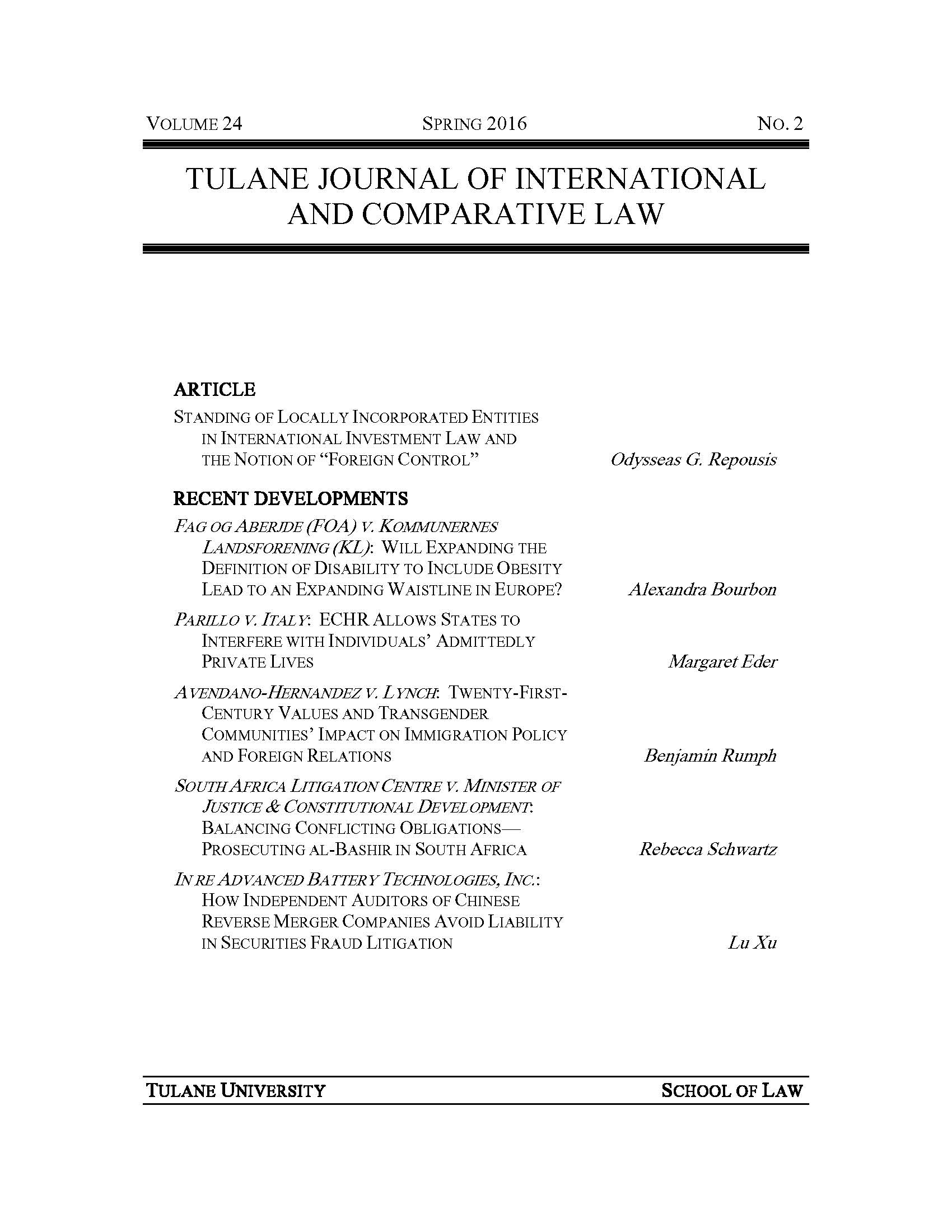Standing of Locally Incorporated Entities in International Investment Law and the Notion of “Foreign Control”
Abstract
Under customary international law, a state’s ability to espouse the claims of its nationals and
subsequently file a suit against another state is limited by the rule of incorporation.1 This has been
clear at least since the seminal decision of the International Court of Justice in Barcelona Traction,
where it was decided that Belgium could not seek recourse against Spain by espousing the claims
of Belgian stockholders in Barcelona Traction, a Canadian company.2 Equally, claims by locally
incorporated entities against the host state are not possible under customary international law.3 The
strict incorporation test has nevertheless become obsolete, if not thrust aside, by the emergence of
investment treaties. In fact, the unprecedented and drastic change brought about by investment
treaties is all the more evident when considering the whole new array of nationality rules they have
solidified. Investment treaties allow for shareholder claims explicitly or by reference to
shareholding as one of the covered forms of investment.4 Some investment treaties go a step
further by allowing locally incorporated entities to directly file a claim against the host state,
provided that such entities are controlled by nationals or legal entities of the other Contracting
Party.5 Claims by locally incorporated entities are also provided for under the International Centre
for Settlement of Investment Disputes Convention (“ICSID Convention”).6 However, the ICSID
Convention, unlike investment treaties, allows for such claims by reference to a “foreign control”
test. Setting out from this premise, this Article does not intend to touch upon all of the nationality
rules encountered in modern international investment law. Rather, it focuses on the standing of
locally incorporated entities. In particular, it asks whether locally incorporated entities controlled
by nationals of the host state qualify as covered investors, and if so, whether there is a difference
between ICSID and non-ICSID claims. In a nutshell, this Article establishes that when a locally
incorporated entity files a claim against the host state (the state of its incorporation), the operation
of the foreign control test under the ICSID Convention enables an investment tribunal to
unlimitedly pierce the corporate veil and assess whether the locally incorporated entity is ultimately
controlled by nationals of the host state. In this case, an ICSID tribunal will have to deny the
vesting of its jurisdiction because the locally incorporated entity cannot satisfy the foreign control
test.7 This principle was first introduced in 2008 by the tribunal in TSA Spectrum v. Argentina and
has recently solidified in the rulings of Burimi v. Albania and National Gas v. Egypt.8 On the
contrary, when nationals of the host state ultimately control a locally incorporated entity but decide
to file a claim against the host state through an intermediate company, incorporated in the other
Contracting State, the locally incorporated entity is treated as an investment of the intermediate
entity.9 In this case, an ICSID tribunal cannot pierce the corporate veil and assess whether the
intermediate company is ultimately controlled by nationals of the host state.
